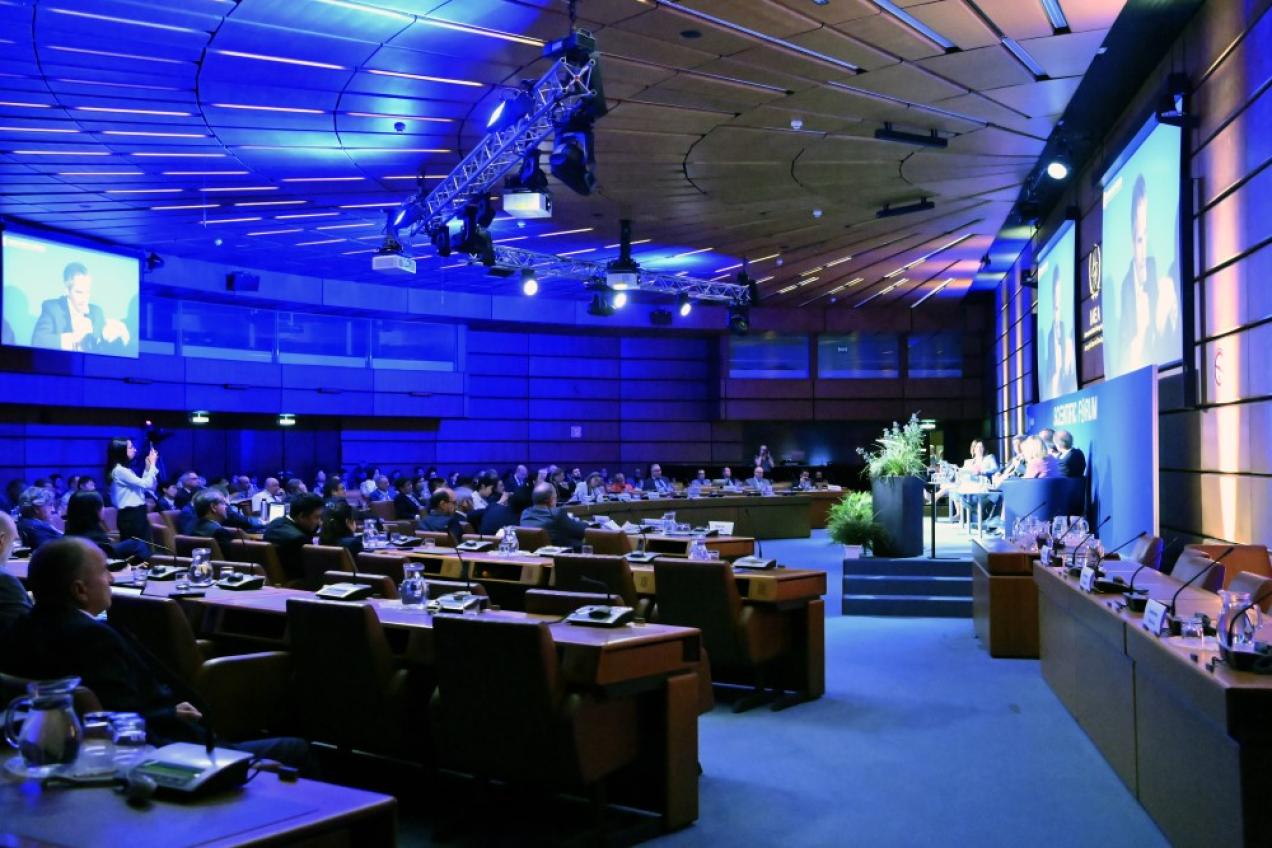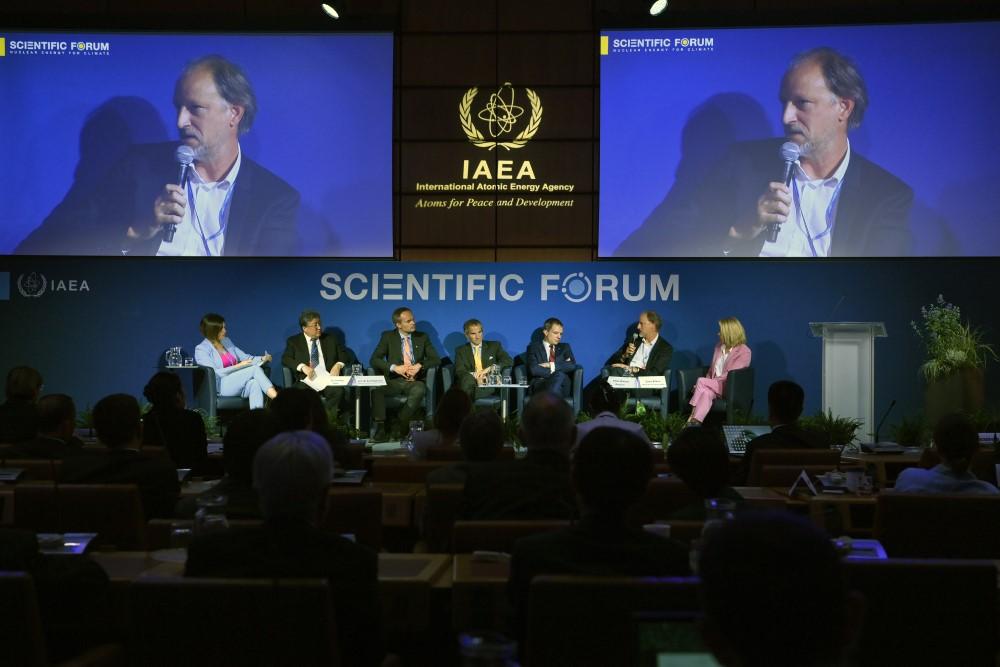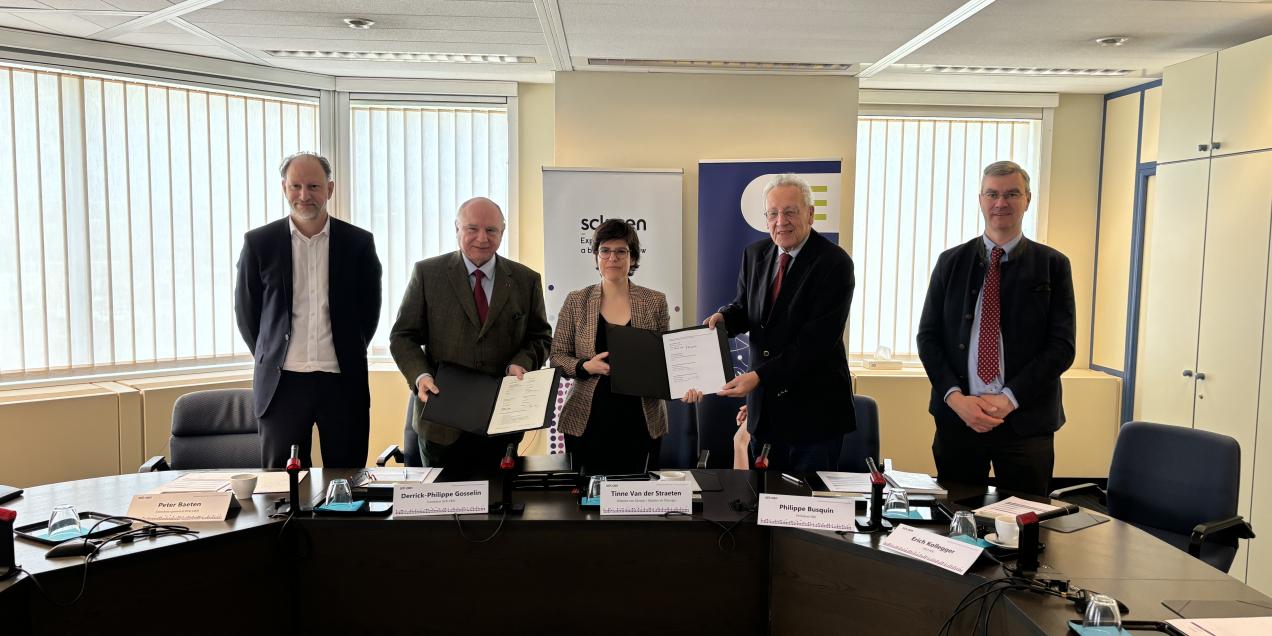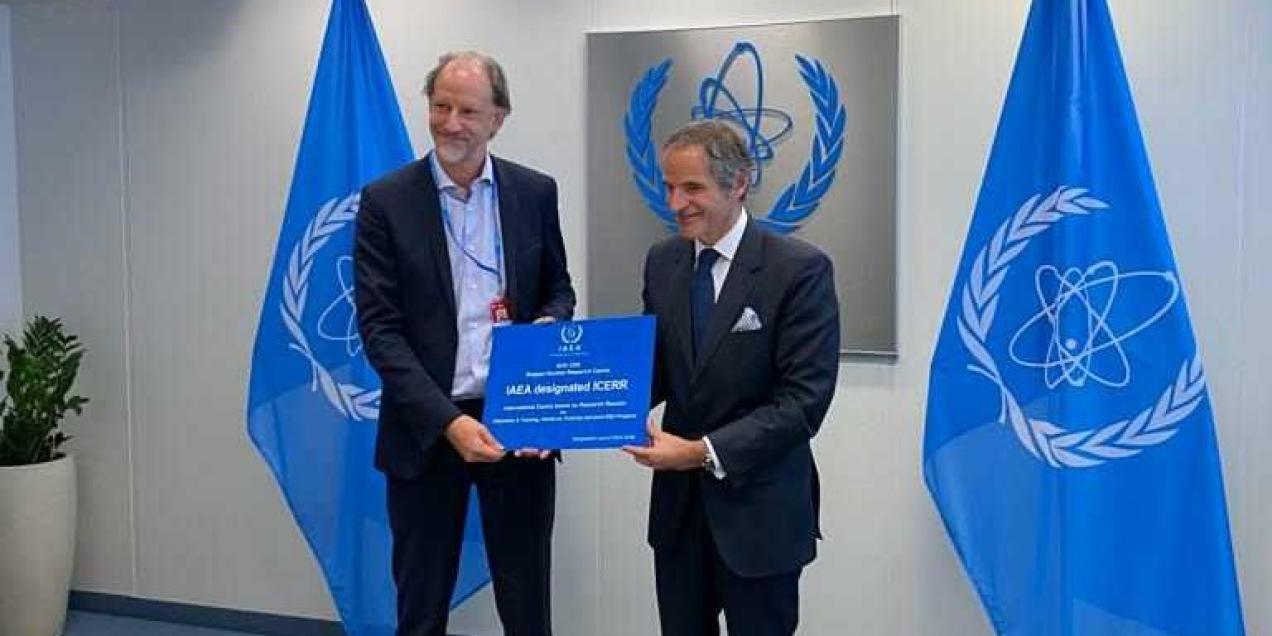“The key of technological innovation lies in innovation in public interaction”
A spotlight on Peter Baeten’s Insights at IAEA’s Scientific Forum 2023 on "Nuclear Innovations for Net Zero”
The IAEA Scientific Forum 2023, themed "Nuclear Innovations for Net Zero" convened global leaders to address the undeniable impact of climate change and the role of nuclear energy in combating the climate crisis. Among these voices, Peter Baeten, Director-General of the Belgian Nuclear Research Center (SCK CEN), highlighted the significance of human capital in overcoming societal challenges and fostering societal acceptance.

Leaders from around the world meeting at the IAEA Scientific Forum: Nuclear Innovations for Net Zero agreed: the effects of climate change are undeniable, and nuclear energy is part of the solution to mitigate the climate crisis and reducing carbon emissions. Innovations will support the integration of nuclear energy into the solutions needed to meet net zero goals.
The Scientific Forum was concluded with a panel discussion. Peter Baeten, Director-General of SCK CEN, had the honor to participate in this discussion, in which it was clearly indicated that the development of technological innovations – such as small modular reactors and advanced nuclear reactors – are in full swing.
While technological innovation remains a linchpin for progress, Baeten pointed out that the solutions, especially those related to the back-end of the fuel cycle, must align with societal values. Fast reactors in a closed fuel cycle – such as lead-cooled SMRs – can respond to the societal concern of minimizing nuclear waste and increasing the utilization of natural resources. For the further optimization of geological disposal, one can consider partitioning and transmutation – as being studied through the MYRRHA project.
Innovation in public interaction
According to Peter Baeten, public acceptance plays a crucial role in propelling innovative solutions for the deployment of nuclear energy. “It’s not just about technological innovation, the key lies in innovation in public interaction. In a world where societal acceptance matters, a holistic approach that integrates technological advancements with effective communication and engagement strategies becomes imperative. So, we have to interact with society to ensure the technical solutions we propose will be, in the end, accepted”, concludes Peter Baeten.

His call for innovation in public interaction echoed the broader consensus that collaboration between research institutes, industry, and international organizations is vital for continuous improvement and development.
Optimism and collaboration
IAEA’s Director General Rafael Grossi expressed optimism about the speed and scale of innovation within the nuclear field. “There are challenges, but it is clear – we are moving decisively. We are moving, perhaps, at different paces and in different ways,” he said. “The end result will not be uniform because there is not a one-size-fits-all solution. But we can see how nuclear is very firmly positioned in this global effort that is taking place now”, is stated on IAEA’s website.
About the Scientific Forum 2023
This Scientific Forum 2023 on Nuclear Innovations for Net Zero was being held in conjunction with the IAEA General Conference in Vienna, Austria. Over two days, experts discussed new nuclear power technologies and how innovations such as artificial intelligence, robotics and 3D printing can advance nuclear power, and how reactors can be used for applications beyond electricity by providing heat for industrial processes or freshwater through nuclear desalination.
Rewatch the closing session
Interested to take a deep dive into this topic? See the sessions’ overview and watch the recordings.
Related articles
 11 June '24
11 June '24 18 April '24
18 April '24 26 September '23
26 September '23